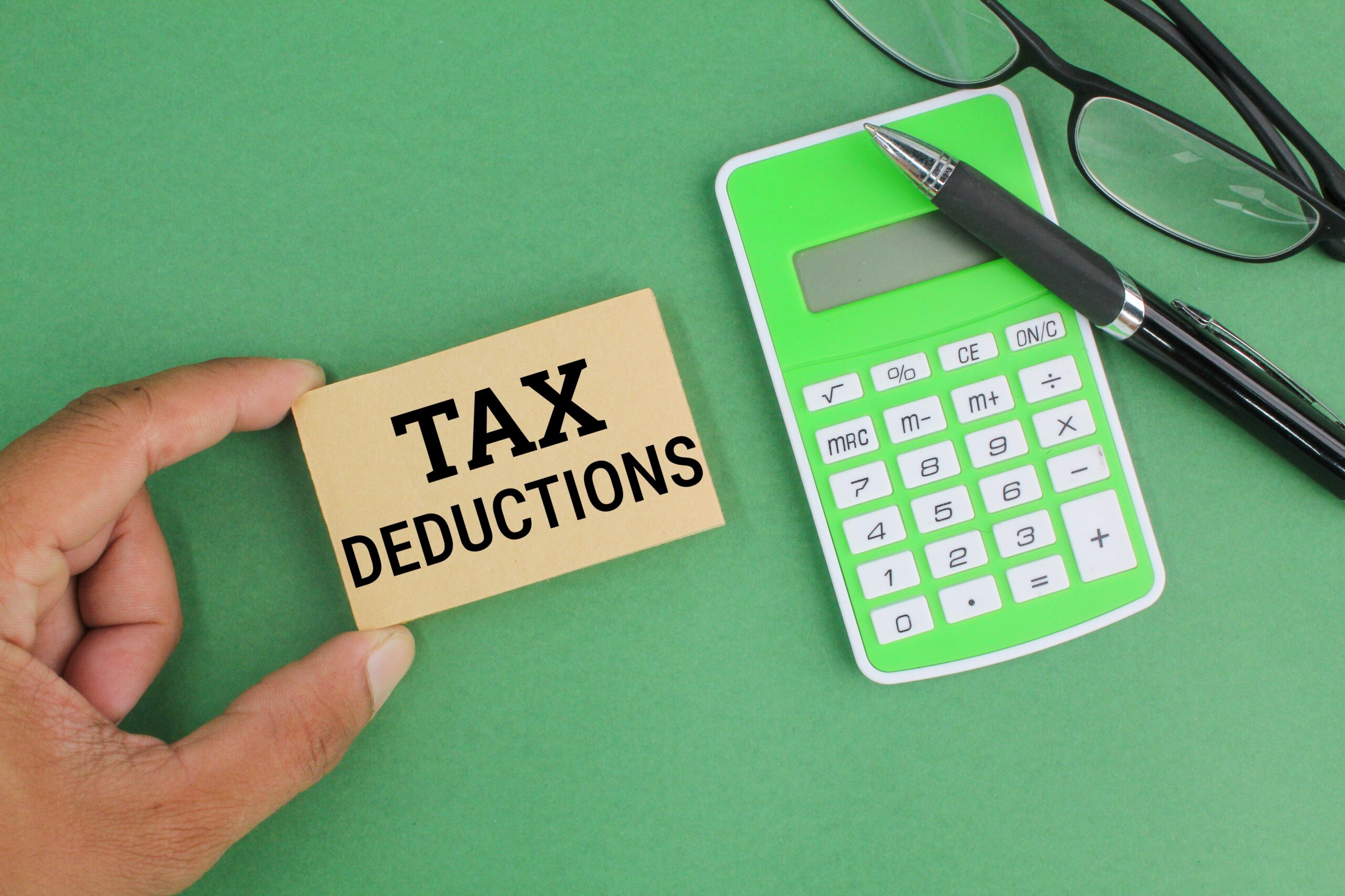
Navigating the world of tax deductions and allowances can be challenging, but it’s a vital part of managing a small business. Taking full advantages of the allowances available to you can significantly reduce your taxable income, allowing you to reinvest more money back into your business and take home more money from your small business yourself.
Here’s a quick overview of some key deductions and allowances that every small business owner should be aware of.
Operational Expenses

One of the most straightforward deductions available to small businesses is for operational expenses. These are the everyday costs required to keep your business running, such as rent, utilities, and office supplies. By deducting these expenses, you can lower your taxable income, reducing the amount of tax you owe. For instance, if you operate your business from a rented office, the rent paid is fully deductible as a business expense. Similarly, the cost of utilities like electricity and internet, essential for your operations, can also be deducted.
Employee-Related Expenses

Another significant area for deductions is employee-related expenses. Wages, salaries, and contributions to employee pensions are typically deductible. This not only helps reduce your tax burden but also allows you to offer competitive compensation to attract and retain talent. Moreover, the costs of training and professional development for your staff are deductible, enabling you to invest in your team while benefiting from tax savings.
Marketing and Advertising Costs

Marketing and advertising expenses are crucial for growing your business, and the good news is that they are deductible. Whether you invest in traditional advertising methods like print or radio ads, or digital strategies such as social media campaigns, these costs can be deducted from your taxable income. This allows you to expand your reach to new customers while minimizing your tax liability.
Travel Expenses

Travel expenses are another significant area where small businesses can save on taxes. Whether you’re meeting clients, attending conferences, or sourcing materials, the costs associated with business travel can add up quickly. Fortunately, many of these expenses are tax-deductible, helping to reduce your overall tax liability.
For travel expenses to be deductible, they must be directly related to your business activities. This means that the primary purpose of the trip must be business-related, and the expenses must be ordinary and necessary for your business. Personal travel or costs incurred during personal days taken within a business trip are not deductible.
Vehicle Expenses: If you use your personal vehicle for business purposes, you can deduct a portion of your car expenses. There are two methods to do this: the standard mileage rate and the actual expense method.
- Standard Mileage Rate: This method allows you to deduct a flat rate per mile driven for business purposes. It simplifies record-keeping, as you only need to track your business miles. The standard mileage rate for cars in the UK is set by HMRC. As of the 2023/24 tax year, the rates are: 45p per mile for the first 10,000 miles in a tax year, 25p per mile for any additional miles beyond 10,000 in the same tax year. If you claim mileage at these rates, you cannot claim any other car-related expenses separately.
- Actual Expense Method: With this method, you calculate the percentage of your vehicle use that is for business and apply that percentage to your total car expenses, including fuel, maintenance, insurance, and depreciation. While this method can result in a larger deduction, it requires more detailed records.
- Public Transport: Costs of trains, buses, taxis, or ride-sharing services used for business travel are fully deductible. This includes the cost of getting to and from airports, between work sites, and to meetings or conferences.
Accommodation: Hotel stays or other lodging costs incurred while on a business trip can be deducted. The accommodation must be reasonable and necessary for the duration of your business activity. However, any personal expenses, such as room service for personal use, are not deductible. If you combine business with personal travel, you can only deduct the lodging costs for the days spent on business activities.
Meals & Entertainment
- Business Meals: You can claim expenses for meals that are solely and exclusively for business purposes, such as a working lunch with a client or supplier. However, the expense must be reasonable, and HMRC may scrutinize lavish or excessive spending.
- Client Entertainment: Expenses for entertaining clients, such as taking them to a restaurant, event, or show, are not tax-deductible for business purposes in the UK. While you can still pay for these costs, they won’t reduce your taxable profit.
- Staff Entertainment: You can claim expenses for staff entertainment, such as a Christmas party or annual event, as long as the cost does not exceed £150 per head per year. This includes food, drink, accommodation, and transport. These expenses are tax-deductible and not subject to income tax for employees if they meet the criteria.
Conference and Seminar Fees: If you attend conferences, seminars, or workshops related to your business, the registration fees, and associated travel costs are fully deductible. This includes fees for online webinars if they require travel to a specific location.
Airfare and Other Long-Distance Travel: The cost of airfare, train tickets, or other long-distance travel to attend business meetings, conferences, or to visit clients is fully deductible. If the trip involves a mix of business and personal activities, you can only deduct the portion related to business.
If your trip is a combination of business and personal activities, you need to carefully allocate the expenses. For example, if you spend four days on business and two days on personal activities, you can only deduct the costs associated with the four business days. It’s essential to keep detailed records to support your claims.
To claim travel expenses, you must maintain accurate and detailed records. This includes keeping receipts, tracking mileage, and documenting the purpose of each trip. Using apps or software to log your travel details can simplify this process and ensure you have the necessary documentation in case of an audit.
Home Office Deduction

The home office deduction is one of the most valuable tax benefits available to small business owners who work from home. This allows you to claim a portion of your home expenses as business expenses, which can significantly reduce your taxable income.
To qualify for the home office deduction, you must meet certain criteria set by HMRC. The space you’re claiming must be used exclusively and regularly for your business. This means that the area should not be used for any other purpose, such as a guest room or personal study. It doesn’t have to be a separate room, but it does need to be a clearly defined space dedicated solely to your business activities.
There are two primary methods for calculating the home office deduction: the simplified method and the actual expense method.
- Simplified Method: The simplified method allows you to deduct a flat rate per square meter of your home office space. This is a straightforward option that requires less documentation and is easier to calculate. The flat rate is multiplied by the square footage of your home office to determine the deductible amount. While this method is simpler, it might not yield as large a deduction as the actual expense method, particularly if your home office expenses are high.
- Actual Expense Method: The actual expense method requires more detailed record-keeping but can result in a larger deduction. Under this method, you calculate the percentage of your home used for business purposes and then apply that percentage to your total household expenses. For example, if your home office occupies 10% of your home’s total square footage, you can deduct 10% of your rent or mortgage interest, utilities, home insurance, and other related expenses. This method takes into account all the actual costs associated with maintaining your home office, which can lead to a more substantial deduction.
Depreciation and Capital Allowances

Depreciation allows you to deduct the cost of assets such as equipment, vehicles, or furniture over time. Instead of deducting the entire cost in the year of purchase, you spread the deduction over the asset’s useful life. This approach helps smooth out your taxable income over several years, providing ongoing tax relief. Additionally, capital allowances enable you to claim deductions on the purchase of certain assets, like machinery or equipment, that are essential for your business operations. Unlike depreciation, capital allowances allow for a substantial portion of the asset’s cost to be deducted in the first year of purchase.
Understanding and utilizing these tax deductions and allowances can make a significant difference in your business’s financial health. By taking advantage of these opportunities, you can reduce your taxable income, lower your tax bill, and free up more funds to invest in your business’s growth.
However, tax laws can be complex, and it’s often best to consult with an accountant to ensure you’re maximizing your deductions while staying compliant with all regulations. At TaxMate, our all-inclusive monthly accounting suscriptions starting at just £35/month include unlimited advice and support from your dedicated accountant, who will work with you to assess how your business in run and where we could potentially use some of the above allowances to improve your take-home profitability.
